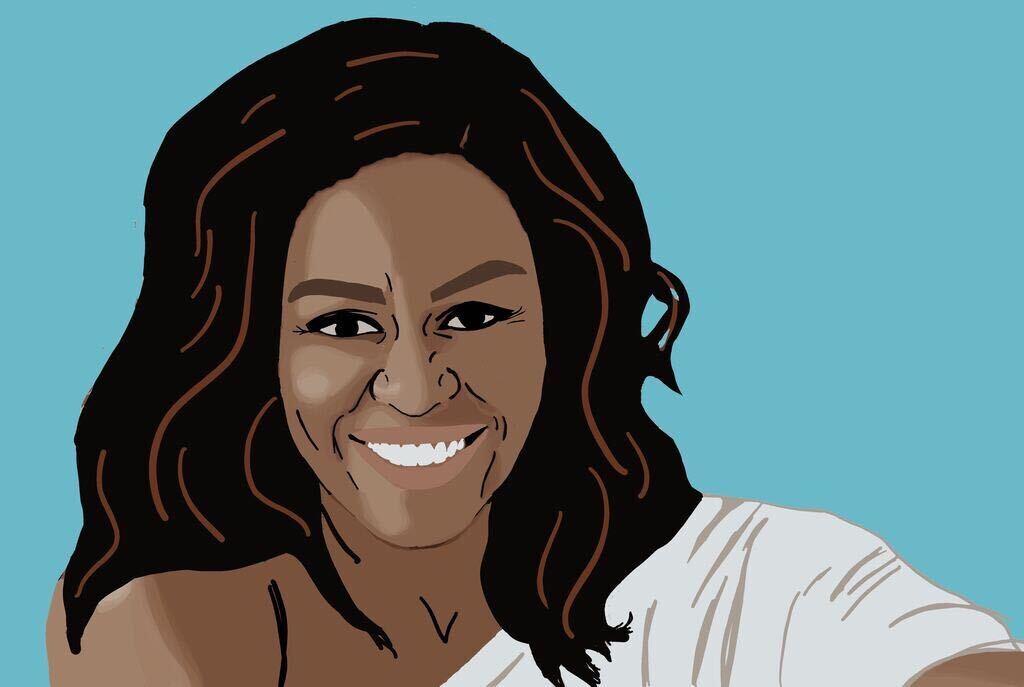While staying safe at home, I had plenty of time to watch all kinds of TV series and films that Netflix suggests. When Netflix released the documentary “Becoming,” on May 6, which follows Michelle Obamaon her book tour promoting her book “Becoming,” it was a breath of fresh air after weeks of mindless binging. It left me feeling empowered and hopeful for the nation’s future.
After watching this film, I realized how little I knew about the former First Lady’s life before the White House, and even before her marriage. I only knew that she was President Barack Obama’s “South Side girl,” but as Michelle Obama says in the film, growing up in Chicago’s South Side, “tells you as much about me as you need to know.”
Michelle Obama certainly seems to have experienced plenty of life lessons in her childhood neighborhood, one of which comes from the “white flight” of Chicago, referring to the phenomenon of white people moving out of urban areas as minority populations move in. She demonstrates the impact of this event on her childhood, comparing her diverse kindergarten class photograph with her almost all-Black high school class photograph. This taught her about race in America early on in life.
Another of her life lessons came from when she was working to be accepted to Princeton, the same school her older brother attended. She was told by a guidance counselor that she was not “Princeton material.” By ultimately attending this university, this is a moving example of how people can achieve more than others give them permission to, especially women and minorities.
Biographies from First Ladies are often overlooked, but they should be celebrated more. It is inspiring to learn how women, like Michelle Obama, are raised to be so empowering.
Being only eight years old when former President Obama was elected, I was not exposed to any disturbing news during the election. I only heard celebrations of the possibility, and then the reality of having a Black family in the White House. I was not familiar with the conspiracy that President Obama was not born in the U.S. until it was brought up in the press during the 2016 election.
While President Obama was a victim of deplorable racism and xenophobia during the election and his presidency, Michelle Obama was also subjected to insults and microaggressions. The film points out Michelle Obama’s statement in a campaign speech: “For the first time in my adult lifetime, I’m really proud of my country.” This statement was portrayed by some media outlets as her disliking America. This reminded me of when Beyonce defended NFL player Colin Kaepernick by saying, “It’s been said that racism is so American, that when we protest racism, some assume we are protesting America.”
A Fox News anchor suggested that the mindset of the media was, “If we can’t prove he’s a Muslim, let’s prove his wife is an angry Black woman.” This reminded me of how important it is to be critical of the media’s coverage of candidates, as they tend to frame candidates, and their family members, as living up to stereotypes about their identities.
My favorite part of the documentary was when the former First Lady talks about her daughters, Sasha and Malia. I remember watching the 2009 inauguration in my third-grade classroom, envying the two little girls waving and smiling with the new President and First Lady. I expected them to be like princesses, constantly making public appearances and living in The White House like it was a palace.
However, Michelle Obama explains in the film that her daughters’ upbringings were as normal as possible. She changed The White House’s environment by insisting the staff did not wear tuxedos or clean the girls’ rooms. Even in a brief, rare interview with Sasha and Malia Obama, they do not talk about themselves or what it is like being a First Daughter, but rather they talk about their mother. The way Sasha and Malia are portrayed in the film is an important reminder to Americans that the children of politicians and public figures should not be subjected to attention in the media, as their lives are not as extraordinary as we may think.
In these troubling times, no matter your political views, it is nice to reminisce about more hopeful and less divisive times and hear inspirational stories and messages from one of the most well-known women in the country. As Malia Obama says to her mother: “Those eight years weren’t for nothing.” “Becoming” instills the hope and optimism of the Obama years.














































